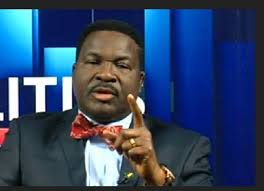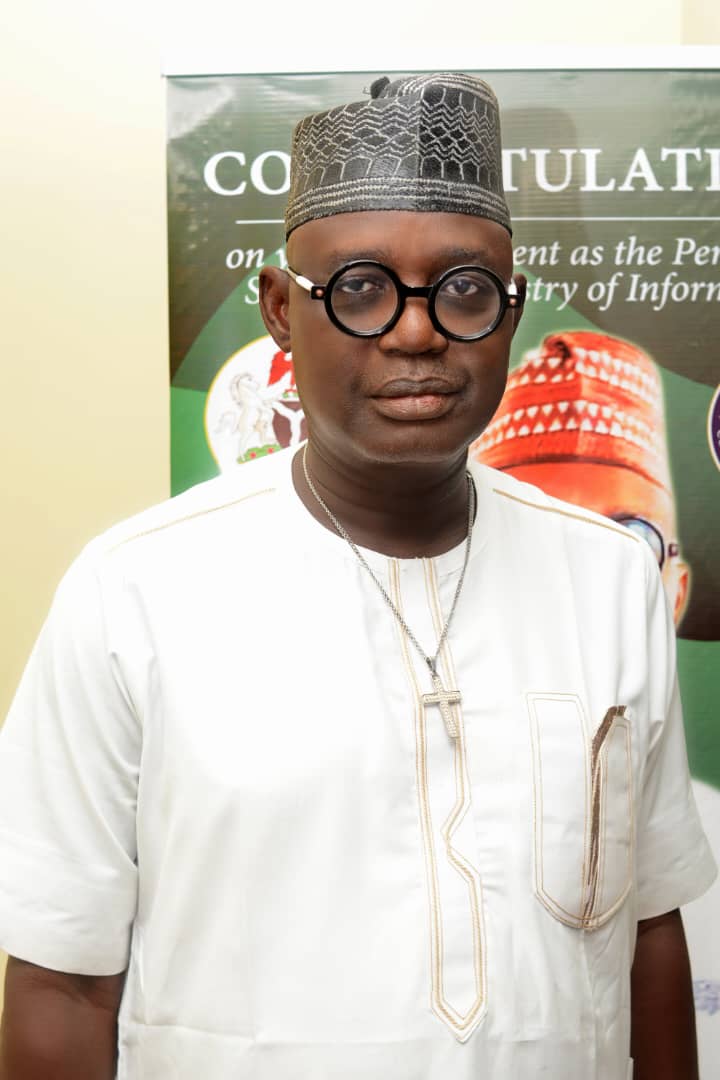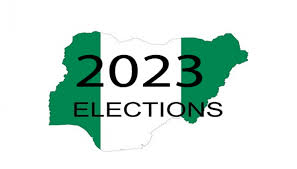By Chief Mike Ozekhome, SAN, OFR, FCIArb, LL.M, Ph.D,
I watched and listened very carefully to my good friend, Chief Festus Okoye, INEC’s cerebral Commissioner for Information and Voter Education, on his recent Channels television interview. I completely disagree with his take and analysis of the place and space of the Resident Electoral Commissioner (REC) in the organogram and scheme of things concerning the electoral process in Nigeria. His analysis, which literally dismissed the RECs with a wave of the hand in a most cavalier manner, if swallowed hook, line and sinker, has the dangerous effect of not only completely defanging RECs and rendering their electoral efforts at the grassroots state levels completely useless, but also of creating avoidable turmoil and schism within INEC itself, as one homogeneous and independent family unit. It can also have the unintended consequence of self-immolation which can self-destruct. It amounts,in my humble view, to saying that the RECs who are constitutionally created across the 36 states of Nigeria, simultaneously and indeed under the same sections with INEC Chairman and the 12 National Commissioners that Okoye harped on, are no more than mere appendages to INEC headquarters, and therefore toothless bulldogs and amoebic bats that neither belong to the animal kingdom, nor to the birds kingdom.
If RECs’ monitoring and conduct of elections at state level levels can be whimsically and capriciously discarded because, according to Okoye, they are mere delegates of the national body of INEC that comprises only of the Chairman and 12 members, then one must ask why the Constitution created them at all in the first place? Can the human anatomical body be whole simply by having a head and stomach alone, without the brain, limbs, eyes, ears, tongue and nose? I think not. How come, if we were to follow Okoye’s argument to its logical conclusion, that a mere witlow suffered by a person on his tiny thumb ,keeps the person’s entire body in pains, agony, pangs and sleeplessness throughout the night?

SOME LEGAL ANLYSIS
Section 153 (1) (f) of the 1999 Constitution as amended provides for the establishment of certain federal bodies, including INEC.
By virtue of section 153 (2) thereof, the “composition” and powers of the bodies established in section 153 (1) above ( which includes INEC ) , are as contained in part 1 of the 3rd Schedule to the Constitution.
Now, Paragraph 14 (1) of the said 3rd Schedule clearly provides that:
“INEC shall comprise the following members –
(a) Chairman, who shall be the Chief Electoral Commissioner;
(b) Twelve other members to be known as National Electoral Commissioners …”.
However, the same paragraph 14 , but under subsection (2), immediately provides for the establishment of the office of the Resident Electoral Commissioner ( REC ) in each state of the Federation and the Federal Capital Territory, Abuja. There are 36 states of Nigeria by virtue of section 2(3) of the Constitution. Without these states, there is no sovereign entity by the name ” Nigeria”.
WHO THEN IS A MEMBER OF INEC?
The answer as regards membership of INEC can be found in section 153 (2) of the Constitution. It provides that the composition and powers of the Commission are as contained in part 1 of the 3rd Schedule.
“Composition”, by definition according to page 207 of the Webster’s Ninth New Collegiate Dictionary, simply means, “the manner in which something is composed”. “composed of” is itself defined at page 286 of the Black’s Law Dictionary,Centennial edition, as,”formed of; consisting of”.
Even the New Webster’s Dictionary of English Language (International Edition), at page 200, also defines “composition” as meaning “content with respect to constituent elements”. To be sure, the word “constituent”, according to page 207 of the Webster’s Ninth New Collegiate Dictionary, means “essential part; component, element”; or “serving to form, compose or make up a unit or whole”.
It is therefore crystal clear and beyond disputation ( except for those who may want to engage in bannal intellectual mastutbation ) that the word “composition” as deployed in section 153 (2) of the Constitution regarding the membership of INEC simply means nothing beyond the aggregation of those bodies established under section 153(1). Only this meaning logically accords with the clear words and phrases used in all the definitions above stated.
Let us see them once more:
“essential part; component elements’’; or, “serving to form, compose or make up a unit or whole”; or “formed of; “consisting of”; or “content with respect to constituent elements”.
The next question that agitates the mind is, what then is “member”, and how do we demonstrate that the meaning of “composition” as used in section 153 (2) simply means membership of INEC?
“Member”, says page 740 of Webster’s Ninth collegiate Dictionary, simply means “one of the individuals composing a group”; or “ a constituent part of the whole”. Also, “member”, according to the
Black’s Law Dictionary, Centennial edition, on the other hand, means “one of the persons constituting a family, partnership, association, corporation, guild, court, legislation or the like”.
Thus, exactly the same words are employed in all the dictionaries cited above to define the two words, “compose” and “member”. What this translates to is that the words, “composition” and “membership”,are not mutually exclusive, but can be used interchangeably to mean the same thing.
By simple analytical deduction, when section 153 (2) of the Constitution speaks of the composition of INEC being as defined in part 1 of the 3rd Schedule to the Constitution, what the section is simply saying is that the membership of INEC shall be as contained in the said part 1 of the 3rd Schedule.By extension, and when stated slightly differently, the persons mentioned in the said part 1 of the 3rd Schedule relating to INEC are also all members of the INEC, notwithstanding that the word “member”, has not been specifically used therein. Membership and composition are therefore synonyms that can be used interchangeably here.
For the avoidance of doubt, paragraph 14 (1) of part 1 of the 3rd Schedule to the Constitution used the word “member” with respect to Chairman and 12 National Commissioners. However, subsection 2 of the same paragraph 14 went ahead to frontallly make provisions for the establishment of the position of REC in each state of the Federation and the FCT. How then can it be reasonably argued that the same schedule 14 which recognizes not only the Chairman and the 12 National Commissioners , but also the same RECs of 36 states and the FCT, can decide to accord recognition to, and ascribe duties to the former alone, whilst excluding the latter?
It simply does not add up, both in realms of law, logic, morality and constitutionalism.
My humble take therefore, is that the Chairman of INEC, the 12 National Commissioner and the 37 RECs are all members of the same INEC family; no more, no less.None is a child of bastardy. None suffers from any form of dubious or questionable pedigree. This is more so as their existence draws life from the same oxygen freely donated by the same paragraph 14, with one falling under subsection(1) and the other under subsection (2), within same part 1 of the 3rd Schedule to the 1999 Constitution, which clearly provides for the “composition” of INEC.
To deny this is to deny that six is the same thing as half a dozen and that Hamlet is the Prince of Denmark.It will thus amount to the greatest illogicality and delusional fallacy of all times to argue that RECs whilst being constitutionally recognized to “compose” or form the “composition” of the INEC, are at the same time denied of being “members” of the same INEC. It will amount to giving power and recognition with the left hand, and at the same time simultaneously snatching same back with the right hand. Such will not make any common, thematic, logical, legal, grammatical or constitutional or sense.
In further support of this my humble argument is section 8 of the old Electoral Act of 2010, as amended, which provides for the staff of INEC without including the office of the REC. Yet, RECs carried out their duties effectively under the Act until the 2022 Act . The question will then be this: what are RECs under the Electoral Act if they are not constitutionally recognised as members of INEC and also not recognized as staff of INEC? Are they bats; haemophrodites, that do not belong to any class? Why then should they be recognized at all in the first case in the Constitution ? Why not simply allow the Chairman and the 12 National Commissioners be all-in-all, the beginning and the end ,of INEC? RECs,it is submitted, are not mere disposable committee of persons which INEC can simply appoint and arbitrarily dispense with under section 7 of the 2010 Electoral Act. Why does the Constitution which provides for the offices of the President and state Governors also provide for the positions of Ministers and Commissioners if the latter were not important or necessary to our polity?
It will be recalled that Okoye had rightly, on 9th July, 2022, reassured Nigerians that “in line with its constitutional and legal obligations, the Commission deployed monitors to the various constituencies and received reports of such exercise…the Commission stands by the monitoring received from our state offices”. Why will INEC now ignore these reports which emanated from the very RECs who are physically on ground? Is it no longer the owner of a house that knows where the yam and knife are kept? Is it a total stranger ( the visiting INEC Commissioners and officials) who will know the terrain better and what took place before, during and after the primarily? Can you have an Army General without foot soldiers? I think not. Or,do you?
What is INEC’s reply, for example, to the glaring anomaly in Kano state, where the REC, Professor Riskwua, told the whole world that the only governorship primary INEC office monitored in Kano had produced Mohammed Sani Abacha, but with the APC leadership and INEC headquarters arbitrarily changing it to one Ambassador Wali? Yet, this was an election monitored in the full glare of the whole world amidst television cameras and the print and social media.
Why will INEC be accepting from political parties, names of persons who did not undergo statutory primaries monitored by its state officials any officials and headed by the RECs, and instead, accept compromised results that lack electoral integrity from political parties, on primaries that were never conducted, and where conducted, were never monitored by its state RECs and officials?
These worrisome scenarios are already playing out in many states across Nigeria, including Oyo, Sokoto, Ogun, Kano, Bayelsa, Akwa Ibom and Abia, amongst others.
How come,for example, that of the 26 candidates of the ruling APC that emerged from valid primaries duly conducted and monitored by INEC Akwa Ibom state INEC office headed by the REC, Mr Mike Igini, only two names were extracted and accepted from the entire report by INEC headquarters?
Whatever happens to section 29(1) of the Electoral Act which gives INEC teeth that only ” candidates that emerged from valid primary ” shall be submitted to INEC by political parties for publication? Why will INEC be shying away from, and abdicating the the statutory powers and duties generously imposed by section 84(1) of the Electoral Act, to compulsorily monitor party primaries; and section 84(13) thereof, to reject names of persons submitted by political parties that fail to comply with the provisions of the Act as regards such primaries? I cannot understand. Or, can you?
CONCLUSION I will conclude this my little contribution as follows. It is crystal clear, per adventure, that the appointment, duration and termination of offices of RECs, including those of INEC Chairman and the 12 National Commissioners, ( all of whom form part of Federal bodies established under section 153 (1) of the Constitution ), are respectively provided for in sections 154 and 155(1) and (2) of the Constitution. This provision applies with equal force to the Chairman, National Commissioners and all RECs. No difference could have been contemplated when no other section of the Constitution provides separately for RECs. Even disqualification criteria for membership of INEC is the same under section 156 for both RECs, the Chairman and the 12 National Commissioners. The same scenario plays out in the mode of removal of members of INEC and other federal bodies from office, under section 157(1). This is by the “President acting on an address supported by 2/3 majority of the Senate praying that he so be removed for inability to discharge the functions of the office (whether arising from infirmity of mind or body or any other cause) or for misconduct”. My humble submission here is that since the Constitution has not made any other provision regarding the mode of removal of RECs, it goes without saying that section 157 (1) also applies to them with equal force, since their office is also a constitutional creation.
Indeed section 6 of the 2022 Electoral Act also replicated Section 157 (1) of the Constitution specifically for RECs.
I further humbly submit that it is simply no argument that paragraph 14 (1) of the 3rd Schedule used the word “membership” to refer to only the Chairman and the other 12 National Commissioners only, since section 153 (2) of the same Constitution has already used the all encompassing word of “composition”, to cover all. As luminously held in the case of OGBEBOR V. DANJUMA & ORS (2003) 15 NWLR (pt. 843) 403 @ 425, a schedule to an Act cannot override,be superior to, or detract from, the substantive provisions of the Statute itself. That will amount to the tail wagging the dog.
It is thus submitted that whichever way it is viewed, the RECs of the 36 states and the FCT, are all constitutional members of INEC and saddled with specific duties which the INEC headquarters cannot usurp at will. They are the Commission ‘s eyes on the ground and know where the roof leaks.The Constitution says so. No person or Act of the National Assembly can derogate or subtract from this truism, by virtue of section 1(3) of the 1999 Constitution.



